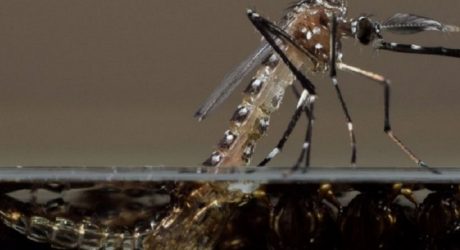GEORGE TOWN, Cayman Islands (CNS) — Just as bio-scientists are releasing tens of thousands of genetically engineered (GE) mosquitoes in the Cayman Islands as part of a project to try and eliminate the Aedes aegypti mosquito, a group of public health, food safety and environmental activists in Florida are raising the alarm about the modified insects.
The Center for Food Safety, and several other agencies are calling on the Food and Drug Administration (FDA) in the US to conduct a more thorough review of the risks associated with releasing the genetically engineered mosquitoes created by UK based firm Oxitec.
As well as commencing a major project in Grand Cayman, Oxitec is urging the FDA to speed approval of another trial in Florida, this time in Key Haven.
But more than 270,000 people have submitted comments to criticize the FDA’s review of Oxitec’s planned release, as the activists say the FDA has failed to evaluate key issues surrounding the releases, including safety to human health, potential for the experimental mosquitoes to move out of testing areas, and whether or not large numbers of the GE mosquitoes will actually reduce the spread of diseases like West Nile, dengue or zika.
“Allowing the widespread release of potentially harmful genetically engineered insects before seeing the hard science is sheer negligence, especially when we’re talking about accidental ingestion,” Jaydee Hanson, senior policy analyst at Center for Food Safety, said in a release Sunday.
Earlier this month Oxitec began a pilot project in Grand Cayman following a trial some five years ago and as a result of the FDA’s findings that other trials in the US and Brazil were not dangerous and had “no significant impacts”.
There was no consultation in Cayman either before the previous, or current trials began, merely announcements that genetically engineered male mosquitoes were being released. During this latest project, the mosquitoes are being released in one district first, but the plan is to release the engineered insects across all of Grand Cayman in an effort to eliminate the Aedes aegypti, which is an invasive species and is involved in the transmission of numerous viruses and disease.
Oxitec is adamant that their engineered insects are not only safe and harmless but they are also environmentally friendly as there is no use of pesticides. But activists have concerns that with so many mosquitoes being released people cannot avoid breathing in and swallowing the insects.
“The FDA really missed the mark on this one,” said Wenonah Hauter, executive director of Food & Water Watch. “The agency seems so eager to speed the process along that they have failed to do a real review of the potential risks, and are ignoring widespread concern in the community where the release will happen.”
The groups also flag the inadequacy of testing done to see how the modified mosquitoes will spread through the environment and what impact that will have on both local and regional ecosystems.
“FDA’s assessment is inadequate. GE mosquitoes would be virtually unregulated, and we don’t know how they would thrive in the wild and what the unintended consequences could be. They could cause more problems than solve,” said Dana Perls, senior food and technology campaigner with Friends of the Earth, US.














